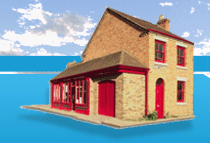| 吉林大学远程教育学院 |






|
|
|
|
|
|


|
>>>> Unit One >>>> Unit Two >>>> Unit Three >>>> Unit Four >>>> Unit Five >>>> Unit Six >>>> Unit Seven >>>> Unit Eight >>>> Unit Nine >>>> Unit Ten >>>> Unit Eleven >>>> Unit Twelve >>>> Unit Thirteen >>>> Unit Fourteen >>>> Unit Fifteen >>>> Unit Sixteen >>>> Unit Seventeen >>>> Unit Eighteen >>>> Unit Nineteen >>>> Unit Twenty >>>> Unit Twenty-one >>>> Unit Twenty-two >>>> Unit Twenty-three >>>> Unit Twenty-four >>>> Unit Twenty-five >>>> Unit Twenty-six >>>> Unit Twenty-seven >>>> Unit Twenty-eight >>>> Unit Twenty-nine >>>> Unit Thirty |
|
True or False Questions 1. The narrator finds he can no longer make two steps at a time when he goes up the stairs because the risers are higher than they used to be. 2. The narrator¡¯s complaint about the small print in papers and his trouble in reading the number on the coin box in a telephone booth show that he suffers from poor eyesight. 3. The narrator¡¯s experiences on the train convince us that the conductors nowadays are less trustworthy than before. 4. When the narrator says all his clothes have shrunk, we know he has actually grown thinner. 5. The narrator¡¯s statement ¡°It¡¯s colder in winter and the summers are hotter than they used to be,¡± indicates he is less adaptable to changes in the weather. 6. The narrator¡¯s interest in the obituary columns of the papers hints at the arrival of his old age. 7. When he went back to an alumni reunion, an undergraduate student offered to help him across the street. This shows young people of today are kinder than they used to be. Multiple-choice Questions 1. Which of the following statements is true about the author when he was still young? A) He was near-sighted. B) He often asked train conductors for information. C) He never got off at a wrong station. D) He often ran to catch the trains. 2. The real reason why the narrator believes everything is farther than it used to be is that ________. A) now it takes him twice as much time to walk from his home to the railway station B) a recently constructed fair-sized hill has doubled the distance to the railway station C) now he has to make two steps at a time while going up the stairs D) he is getting older and weaker, and finds it very tiring to walk 3. The reason why the narrator quitted driving is that _______ . A) he is too old to drive B) sometimes there are no restrooms at filling stations C) he wants to stay home and read the papers D) his hands shake when he drives 4. All of the following are the author¡¯s impressions of today¡¯s college students except that ____. A) they pay no courtesy and respect to old people B) they are willing to help him to cross the street C) they look younger than college students of the 1920¡¯s D) the average age of the freshmen seems to be about seven 5. Which of the following statements best describes the conversation that took place between the narrator and his old room-mate George? A) They misunderstood each other. B) They talked about two different topics. C) They forgot what they had just said and always repeated themselves. D) They didn¡¯t like the food and the drink of today. 6. The author¡¯s purpose in writing this essay is probably to _______ . A) poke fun at old people B) show how he suffers as an old man C) write with humor about the unavoidable effects of growing old D) criticize the society¡¯s indifference toward old people
|
| 版权所有COPYRIGHT(C) 2005 DEC OF JLU |